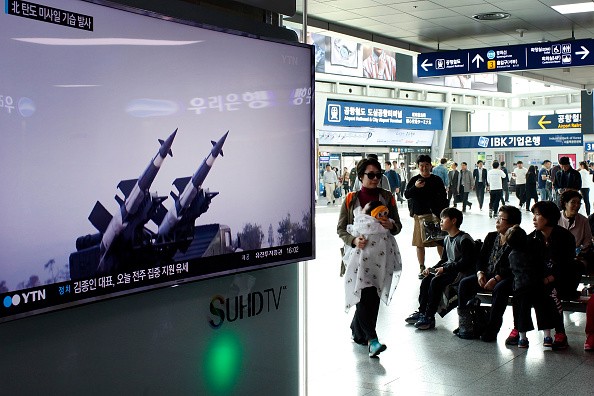One of China's top diplomats has urged for further talks between North Korea and the United States to prevent the Korean Peninsula from turning into a nuclear "dark forest."
"Only through dialogue can mutual security be achieved . . . [and] may help wrestle the Korean Peninsula out of its current vicious cycle and prevent North-east Asia from turning into a Dark Forest," Fu Ying, the former Chinese ambassador to Australia, wrote in an essay published by the U.S. Brookings Insititute on Sunday.
"The Dark Forest" is a science fiction novel by Chinese writer Liu Cixin wherein former world leader, famous for repelling a U.S. invasion, builds an atomic bomb to destroy the earth.
The 20,000-word essay described the Obama administration's "main goal" of imposing financial sanctions against North Korea as potentially unrealistic, as Kim Jong-un's rise to power has brought stability to the reclusive nation.
She also wrote that North Korea won't give up its nuclear ambitions to avoid sanctions because the regime began testing nuclear missiles after the sanctions were put in place.
Yu's comments come as Beijing attempts to pressure the White House to agree to its proposal for the use to halt its joint military drills with South Korea in exchange for Pyongyang to freeze its nuclear weapons program.
On Monday, U.S. President Donald Trump said he would be "honored" to meet Kim Jong-un "under the right circumstances." A White House spokesperson later clarified that the U.S. would first need to see changes in North Korea's behavior before a visit can push through.
Asked to respond to Trump's comment about possibly meeting Kim, a spokesman for China's Foreign Ministry said China encouraged peace talks.
"The U.S. and the DPRK [North Korea] as the direct parties in the nuclear issue should take credible efforts at an early date . . . for the resumption of peace talks," he said.
Fu, who heads the foreign affairs committee of National People's Congress, the country's top legislature, has argued China has "no leverage" over North Korea without addressing its security concerns.
Citing her previous work as head of the Chinese delegation during talks between the U.S. and North Korea in 2003, she highlighted the difficulty of getting the two sides together as the U.S. was clearly keeping "attack" as an option while North Korea intended to continue developing nuclear weapons as a backup plan.
Despite this, Fu said the resulting six-party talks were fruitful as it stabilized the situation on the Korean Peninsula and led to several agreements.
"The disruption of the talks was due to a failure to implement those agreements and the nuclear issue has escalated in the absence of talks," she wrote, adding that restarting dialogue would be much harder due to the increased level of distrust between the U.S. and North Korea.
South Korea's Yonhap news agency reported that two U.S. B-1B strategic bombers flew over the Korean Peninsula during the weekend.
The U.S. and its allies have also called for China to do more in imposing financial sanctions against its neighbor.



























